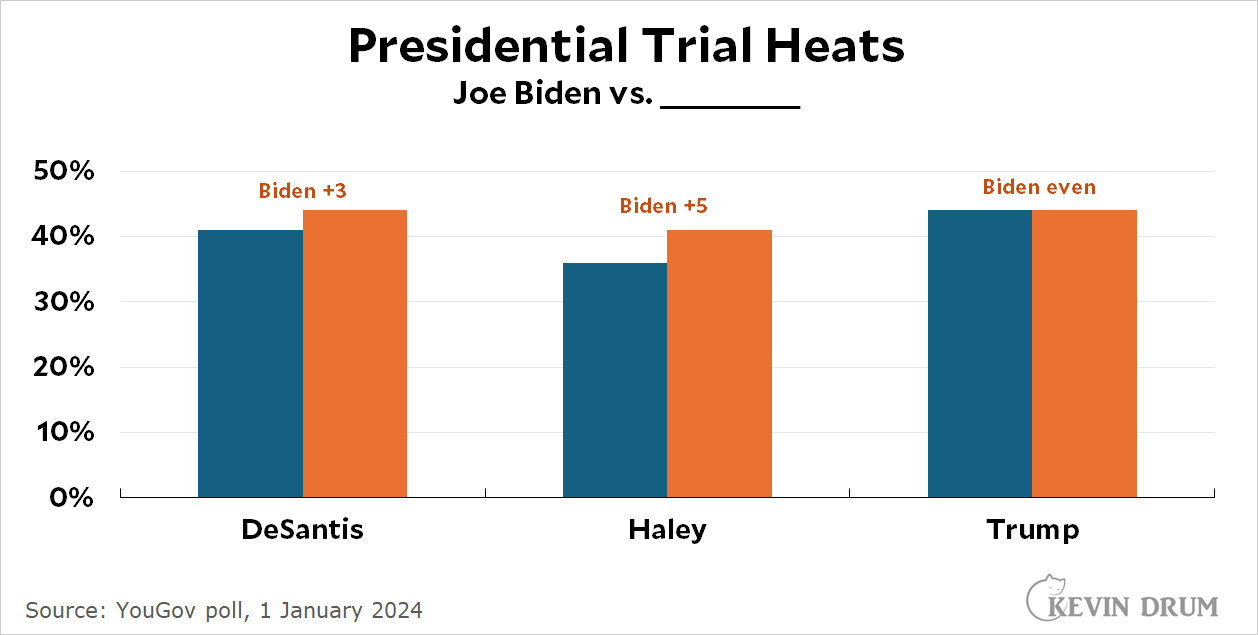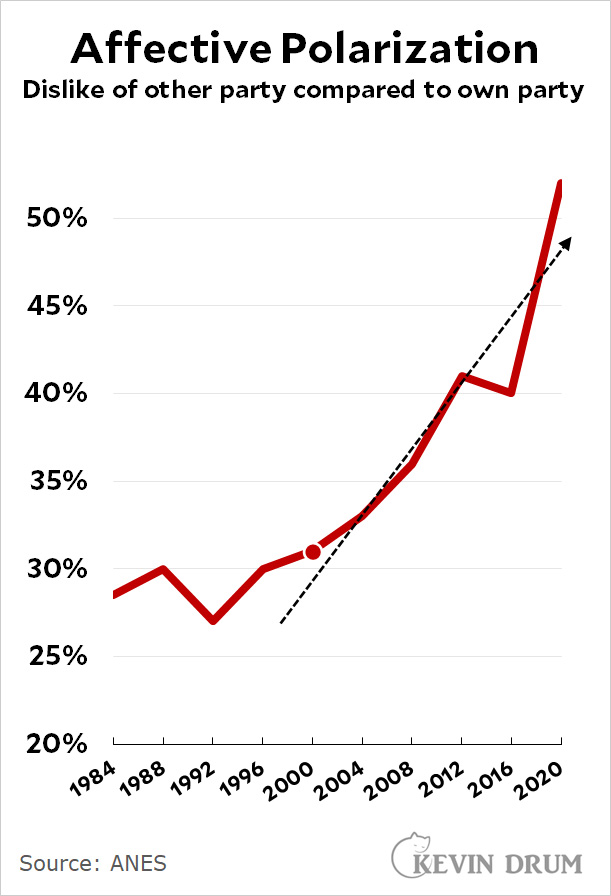Over lunch I was pondering the fact that people forget so quickly about the problems of the past, which is part of what makes the problems of the present seem so overwhelming and unique. But just compare today to the late '60s, the era of Vietnam, the Cold War, the Six Day War, race riots, rivers catching on fire, assassinations, campus unrest, drugs, the Democratic Convention, the Moynihan report, and so much more. We look pretty good
But that's too easy. How about comparing the present to the calmest decade of recent years? I guess that would be the '90s, right? The Cold War was over, the internet was booming, the economy was great. Those were the days!
But it didn't always seem that way at the time. I trawled through Time covers of the '90s to see what was on our minds back then, and it's sort of amazing—even to me—how much of it is not just familiar, but nearly identical. Just think of all the things we've forgotten about: Good jobs going away;1 crack babies;2 obesity;3 wars in the Gulf, Somalia, and Kosovo;4 sarin gas; sex trafficking;5 music and movies debasing us;6 Los Angeles is doomed;7 Asia is out-competing us;8 the incredible shrinking president;9 gun violence out of control;10 the AIDS epidemic;11 superpredators; busybodies and crybabies;12 OJ; genocide in Rwanda;13 Timothy McVeigh; Newt Gingrich;14 Whitewater;15 Matthew Shepard; rampant crime;16 Muslim terrorism;17 impeachment;18 kids are slackers;19 Milosovic; cyberporn;20 Columbine;21 the new racism;22 is a presidential candidate too old?23
And that's a good decade.

1cf. Millennials are screwed
2cf. fentanyl
3cf. obesity and Ozempic
4cf. Ukraine and Gaza
5cf. Pizzagate, Epstein, etc.
6cf. social media disinformation
7We're still here!
8cf. China taking our jobs
9cf. Biden is so unpopular
10cf. gun violence is out of control
11cf. COVID-19
12cf. Karens
13cf. genocide in Gaza
14cf. Donald Trump
15cf. Hunter Biden
16cf. allegedly rampant crime
17cf. Muslim terrorism
18cf. impeachment
19cf. kids are slackers
20cf. social media is destroying our youth
21cf. Sandy Hook etc.
22cf. DEI and social justice
23cf. Joe Biden is too old
 The border ranks second in importance among Republicans (the economy is first), generally getting about a 15% share over the past few years. But it's spiked recently, and if the economy continues to improve it could easily go up more. It still seems a little iffy to me given the moderate energy it seems to produce even among Republicans, but it could work.
The border ranks second in importance among Republicans (the economy is first), generally getting about a 15% share over the past few years. But it's spiked recently, and if the economy continues to improve it could easily go up more. It still seems a little iffy to me given the moderate energy it seems to produce even among Republicans, but it could work. Look at that. Since the start of the Biden administration support for universal health care has gone up from 20% to 45% among Republicans. Interesting.
Look at that. Since the start of the Biden administration support for universal health care has gone up from 20% to 45% among Republicans. Interesting.






